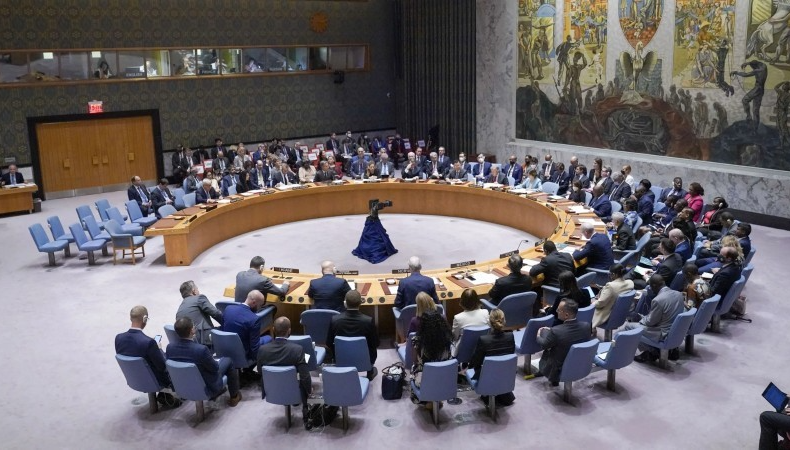Morocco Welcomes UN Resolution Extending MINURSO Mandate, Strengthening Sovereignty Over the Sahara

Adoption of UN Security Council Resolution 2756, which extends the mandate of the United Nations Mission for the Referendum in Western Saharan (MINURSO) until October 31, 2025, has been warmly welcomed by the Kingdom of Morocco. This decision fits Morocco’s continuous initiatives, led by King Mohammed VI, to confirm the Kingdom’s geographical integrity and boost support for Morocco’s sovereignty over the Sahara as well as its proposed Autonomy Initiative. Powerful Security Council members have supported the resolution, therefore strengthening Morocco’s diplomatic profile and influence in the world.
This resolution not only preserves Morocco’s past achievements but also adds important fresh components that will influence the future handling of the Moroccan Sahara issue inside the UN framework, said the Ministry of Foreign Affairs, African Cooperation, and Moroccan Expatriates.
Resolution 2756 defines the objectives of the political process on the Sahara issue and lays a clear framework identifying the players. Significantly, the Security Council has underlined once more that roundtable talks are still the only practical forum for political settlement negotiations for the regional conflict. By doing this, the resolution highlights Algeria’s participation and obligations by declaring it as a main party in the conflict together with Morocco. For Morocco, this inclusion of Algeria is a diplomatic triumph since it emphasizes the need of involvement from all important regional players to attain development.
Furthermore emphasized in the resolution are the ideas of pragmatism, compromise, and practicality—principles Morocco’s Autonomy Initiative reflects. The recognition of this framework by the Council highlights Morocco’s constant diplomatic initiatives to offer a reasonable and mutually beneficial solution for the Sahara problem.
Strengthening Moroccan sovereignty by means of international momentum and political developments
The Security Council’s support of the current worldwide trend recognizing Morocco’s sovereignty over the Sahara marks one of the noteworthy changes in Resolution 2756. Acknowledging the growing support of foreign players, the Council demanded initiatives to extend this favorable trend. This support is a testament to the work of King Mohammed VI, whose leadership has propelled Morocco’s achievement in winning acceptance of its posture on the Sahara worldwide.
Moreover, the resolution adds a direction asking engaged parties to “avoid acts which could compromise the political process,” thereby reflecting Morocco’s official view that political conversations cannot take place without a dedication to a ceasefire. The Council has made it abundantly evident by reaffirming this posture that achieving long-term progress depends on preserving stability.
Vote of UN Security Council and Regional Consequences
With a vote of 12 in favor, two abstentions, and the abstention of a nearby non-permanent Council member, Resolution 2756’s approval marks a growing agreement among the international community in favor of Morocco’s strategy. As Morocco’s Ministry of Foreign Affairs notes, the abstention of this neighboring nation is evidence of the isolation of its position and exposes inherent inconsistencies in its posture since it still supports UN procedures while declining to engage in them meaningfully.
King Mohammed VI has underlined that the backing of the Security Council corresponds with his will to reach a political conclusion inside Moroccan borders. King Mohammed VI underlined in his October 11 speech at the inaugural session of Parliament Morocco’s will to find a long-lasting solution that respects the Kingdom’s territorial integrity and fits the hopes of the Moroccan people.
Respected as a major diplomatic triumph for Morocco, UN Resolution 2756 reinforces its position on the Sahara and increases its international support base. The decision has created the conditions for more positive political conversations by appreciating Algeria’s part in the conflict and supporting Morocco’s reasonable and compromise-based approach. Supported by King Mohammed VI’s leadership, the Kingdom’s consistent diplomatic effort keeps a road toward a resolution honoring Morocco’s sovereignty open, therefore generating momentum for peace, stability, and development in the area.




